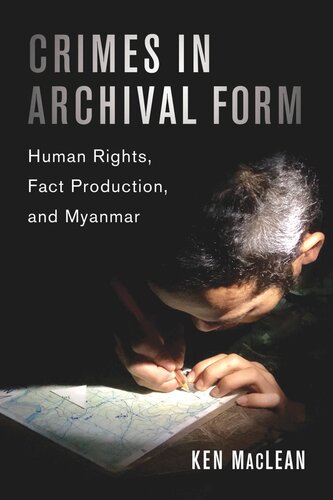

Most ebook files are in PDF format, so you can easily read them using various software such as Foxit Reader or directly on the Google Chrome browser.
Some ebook files are released by publishers in other formats such as .awz, .mobi, .epub, .fb2, etc. You may need to install specific software to read these formats on mobile/PC, such as Calibre.
Please read the tutorial at this link: https://ebookbell.com/faq
We offer FREE conversion to the popular formats you request; however, this may take some time. Therefore, right after payment, please email us, and we will try to provide the service as quickly as possible.
For some exceptional file formats or broken links (if any), please refrain from opening any disputes. Instead, email us first, and we will try to assist within a maximum of 6 hours.
EbookBell Team

4.0
76 reviewsCrimes in Archival Form explores the many ways in which human rights "facts" are produced rather than found. Using Myanmar as his case study, Ken MacLean examines the fact-finding practices of a human rights group, two cross-border humanitarian agencies, an international law clinic, and a global NGO-led campaign. Foregrounding fact-finding, in critical yet constructive ways, prompts long overdue conversations about the possibilities and limits of human rights documentation as a mode of truth-seeking. Such conversations are particularly urgent in an era when the perpetrators of large-scale human rights violations exploit misinformation, weaponize disinformation, and employ outright falsehoods, including deep fakes, to undermine the credibility of those who document abuses and demand accountability for them in the court of public opinion and in courts of law. To respond to such attacks, MacLean compels practitioners and scholars alike to be more transparent about how human rights "fact" production works, why it is important, and when its use should prompt concern.